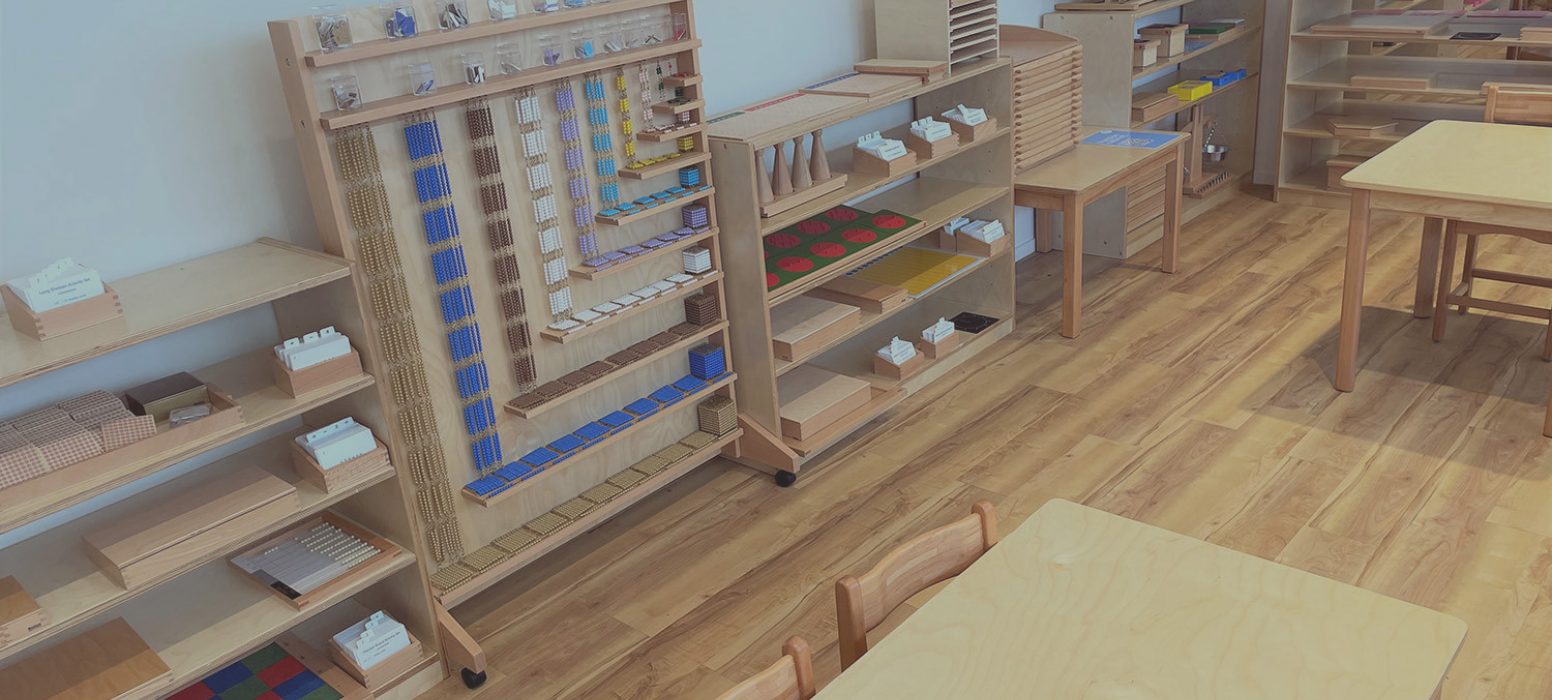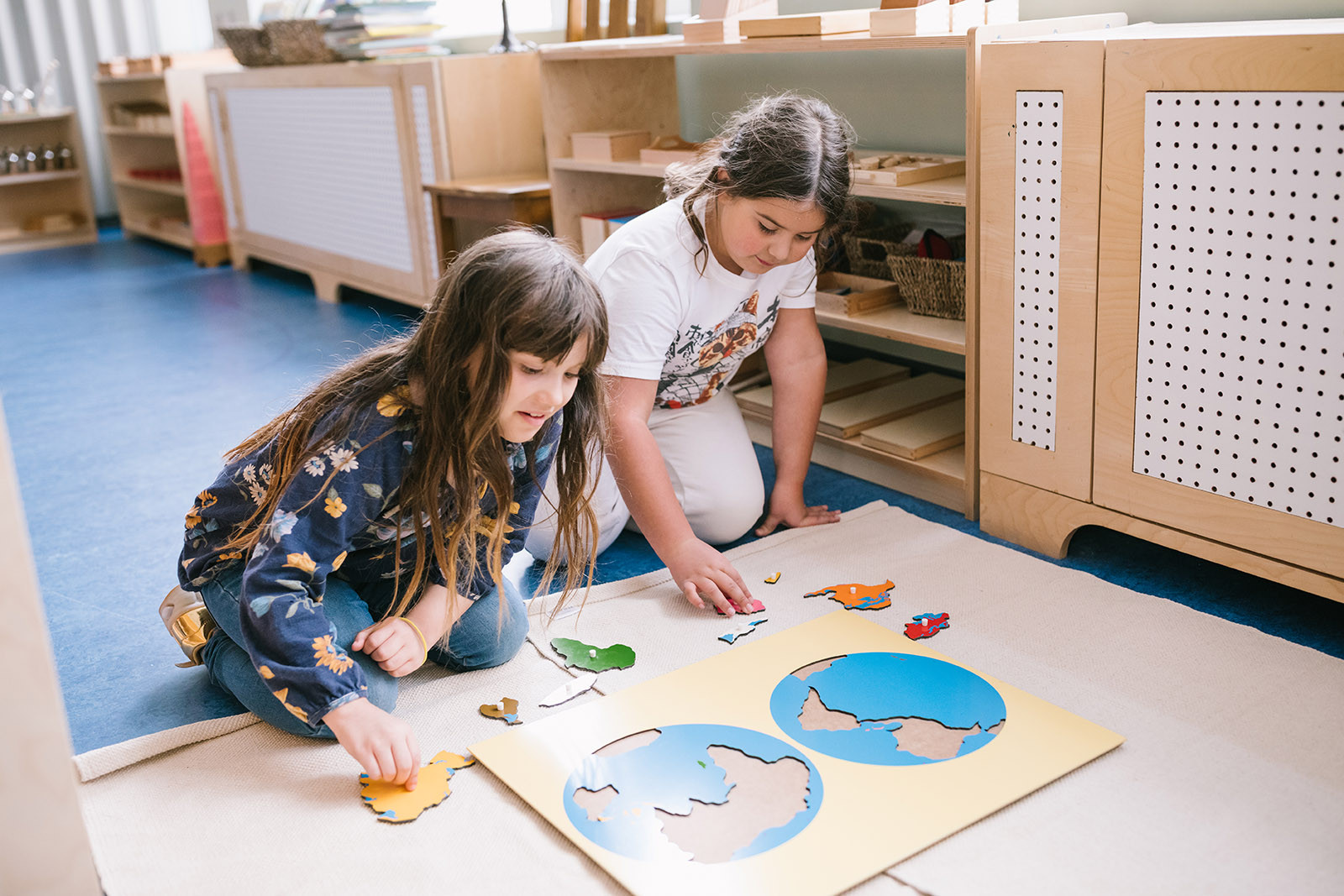
Primary
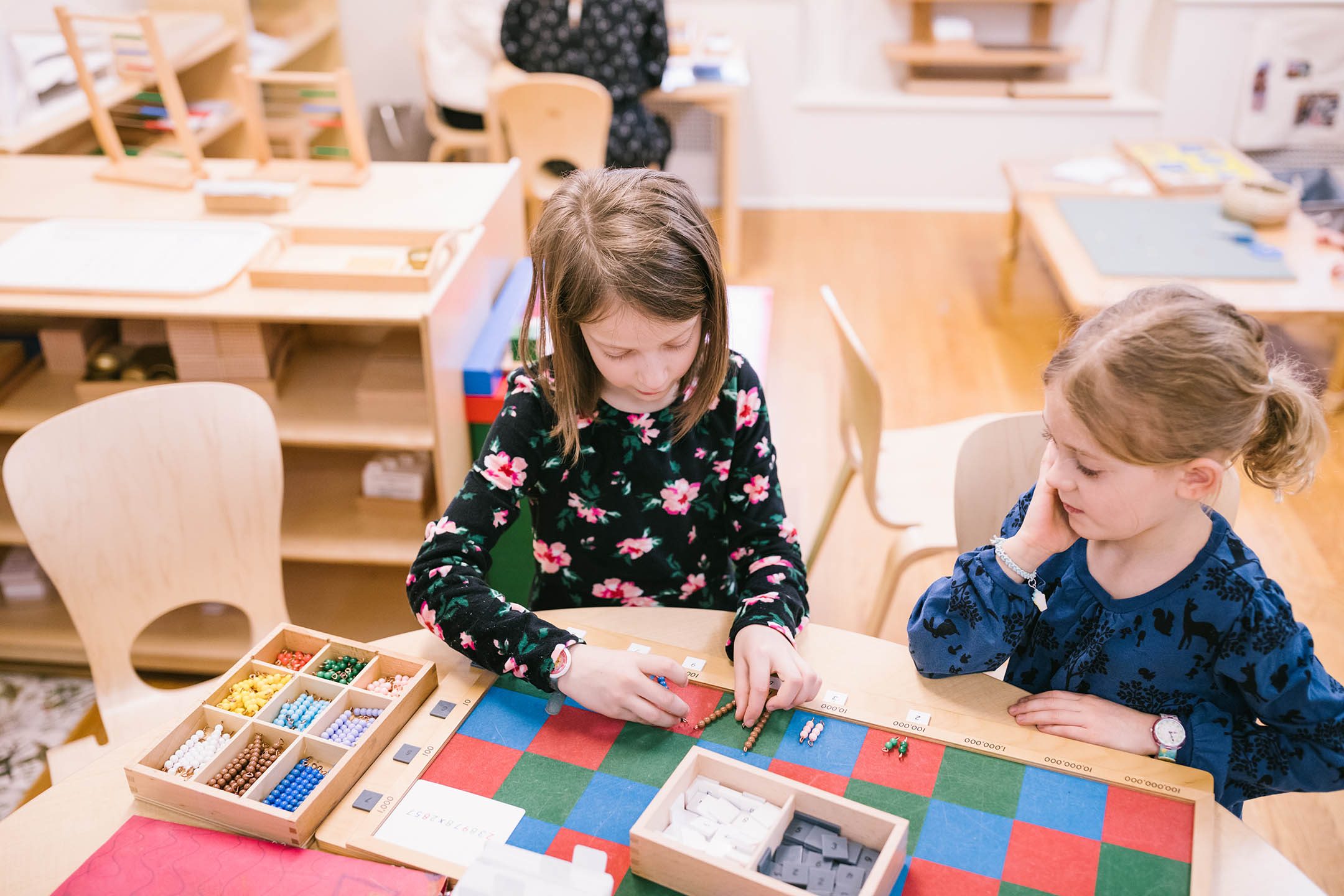
Program Highlights
Children build advanced knowledge of math, language, literature, science, history, geography, culture, and art. Each area of the curriculum comes with scientifically designed learning materials that appeal to the child's interests and abilities, to help maximize the amount of learning possible.
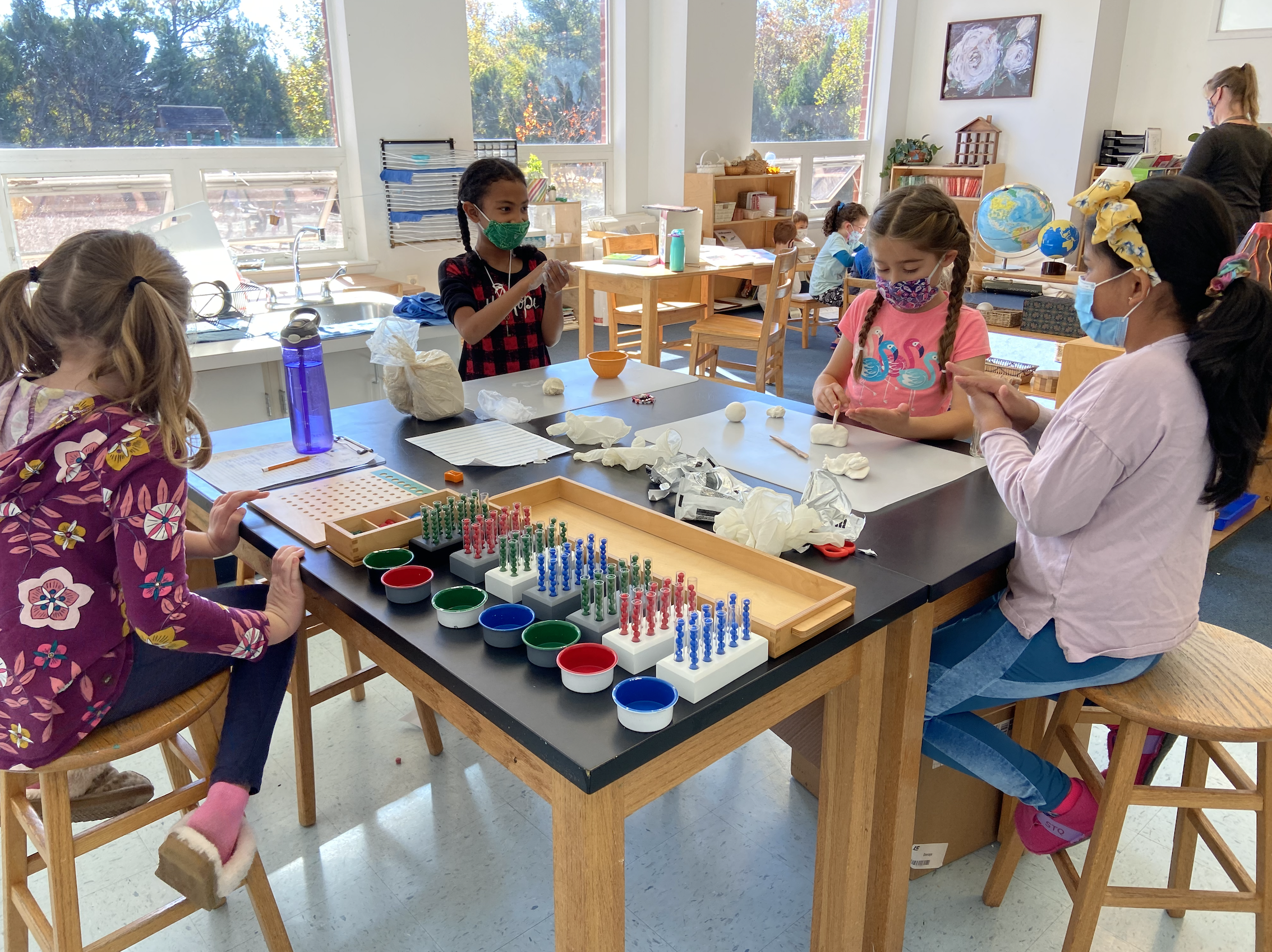
Guides tailor lessons to each student, making sure all areas of the curriculum are covered. However, students also have the freedom to pursue their own interests, extending lessons learned to exploring entirely new topics. The guide helps students consider the scope of their projects and how to use their time efficiently, redirecting their efforts where necessary.
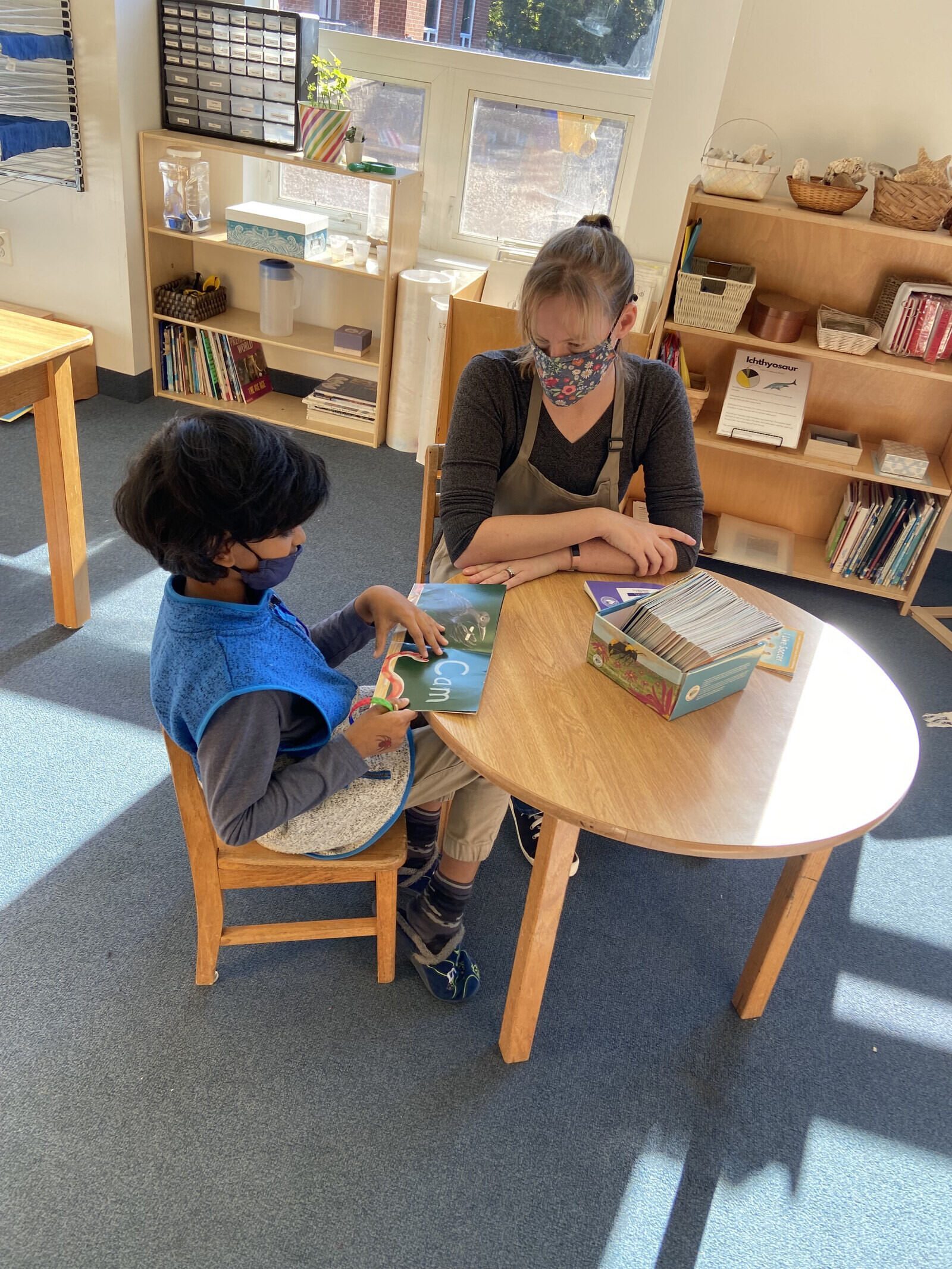
Whenever students show that they are ready to study academic subjects at a higher level, guides give them plenty of opportunities to do so. This enables children to acquire a sophisticated understanding of each subject that goes beyond memorizing facts for an upcoming test. In a classroom atmosphere of freedom with responsibility, students work diligently for themselves and not the teacher.
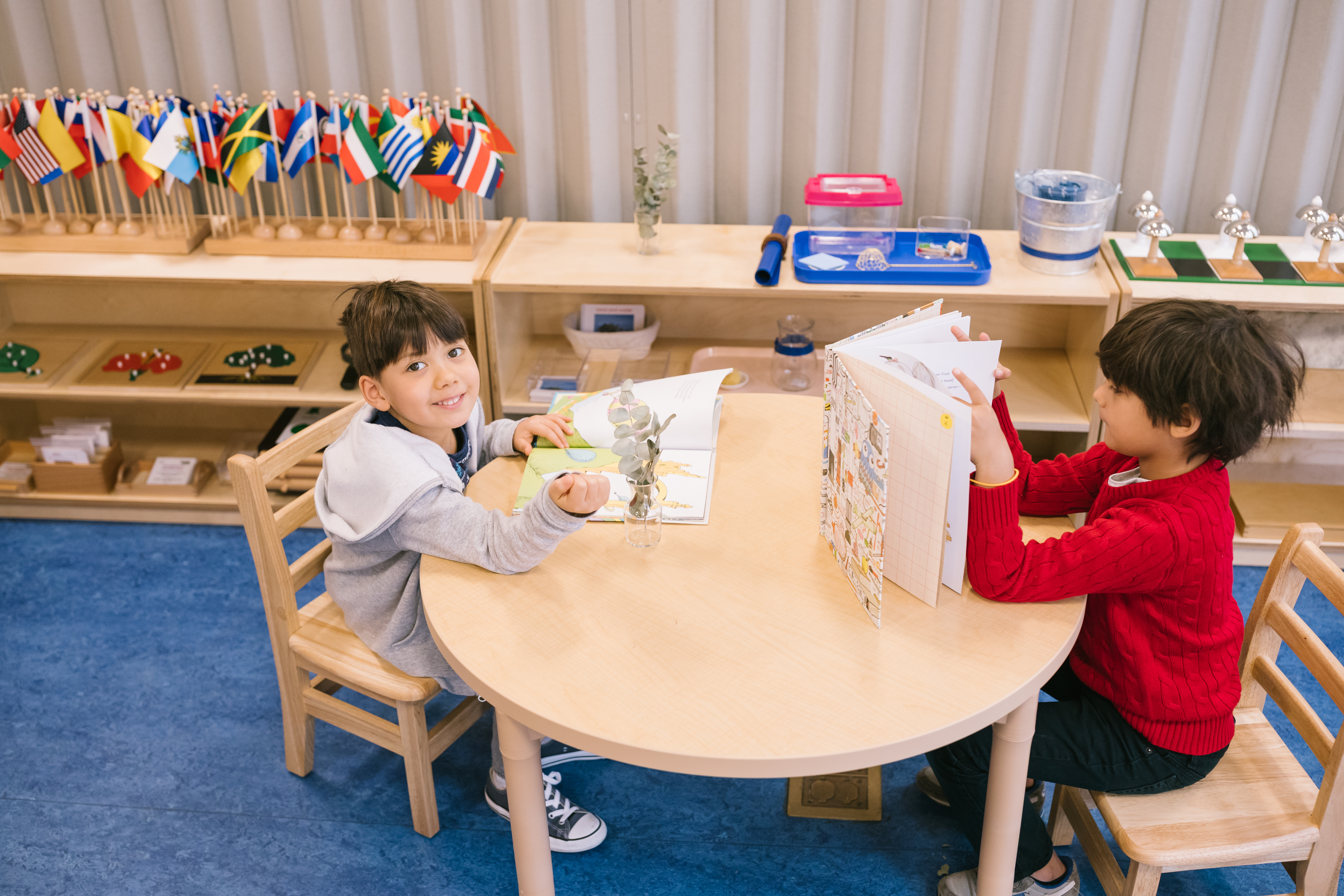
Students enjoy challenges, develop persistence, organizational skills, and finish the things that they start. This sense of inner discipline and social responsibility makes school more enjoyable and prepares students for success in adulthood.
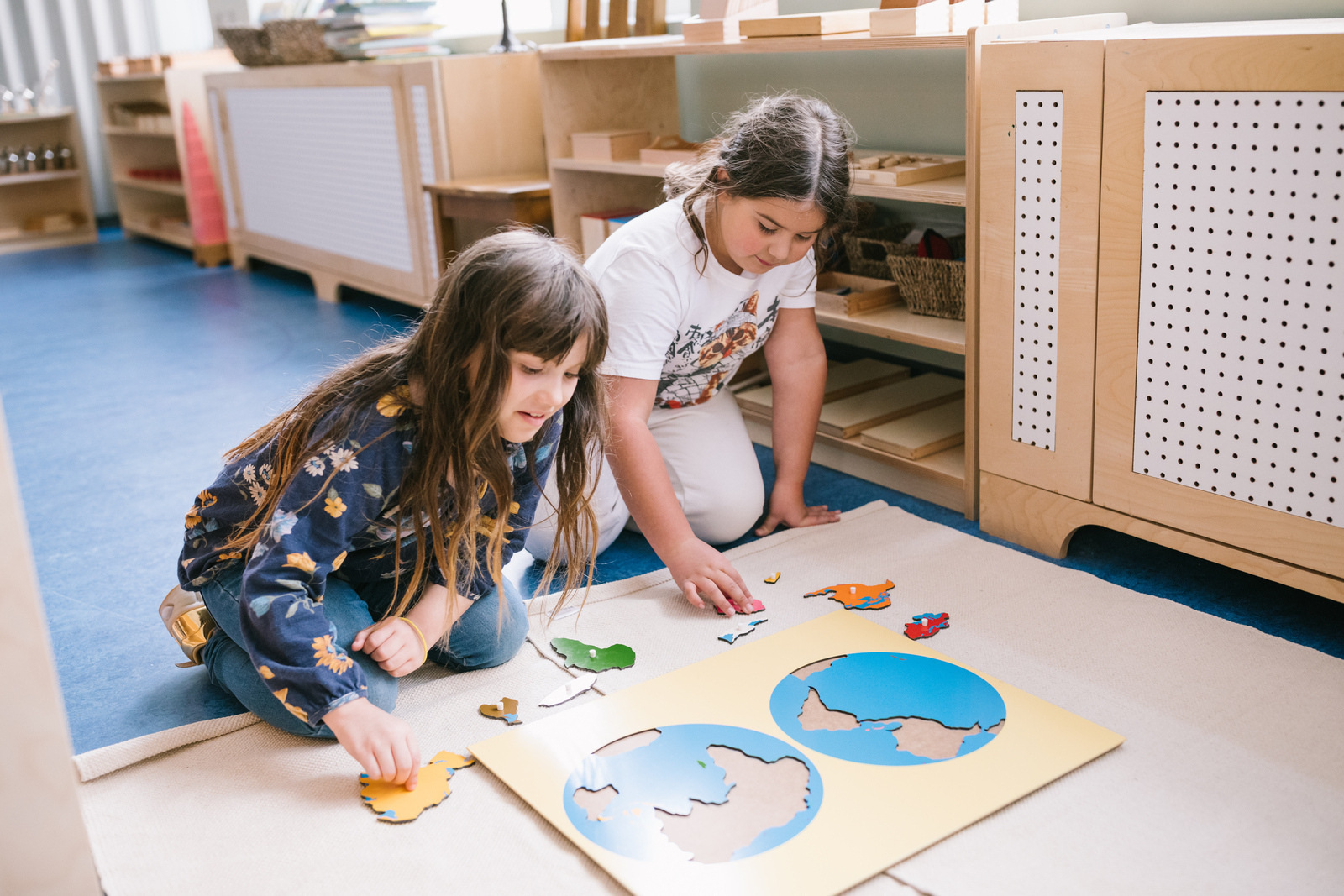
Mixed-age classrooms mirror real-world work and family conditions. Students care for the classroom, plan excursions, and manage deadlines. Children learn to include others in decision-making, negotiation, and acceptance of accountability for their commitments. Students are given freedom of movement and choice so that they can become more aware of their own needs as an individual within the group – like when they need to pursue a big project and when to take a rest.
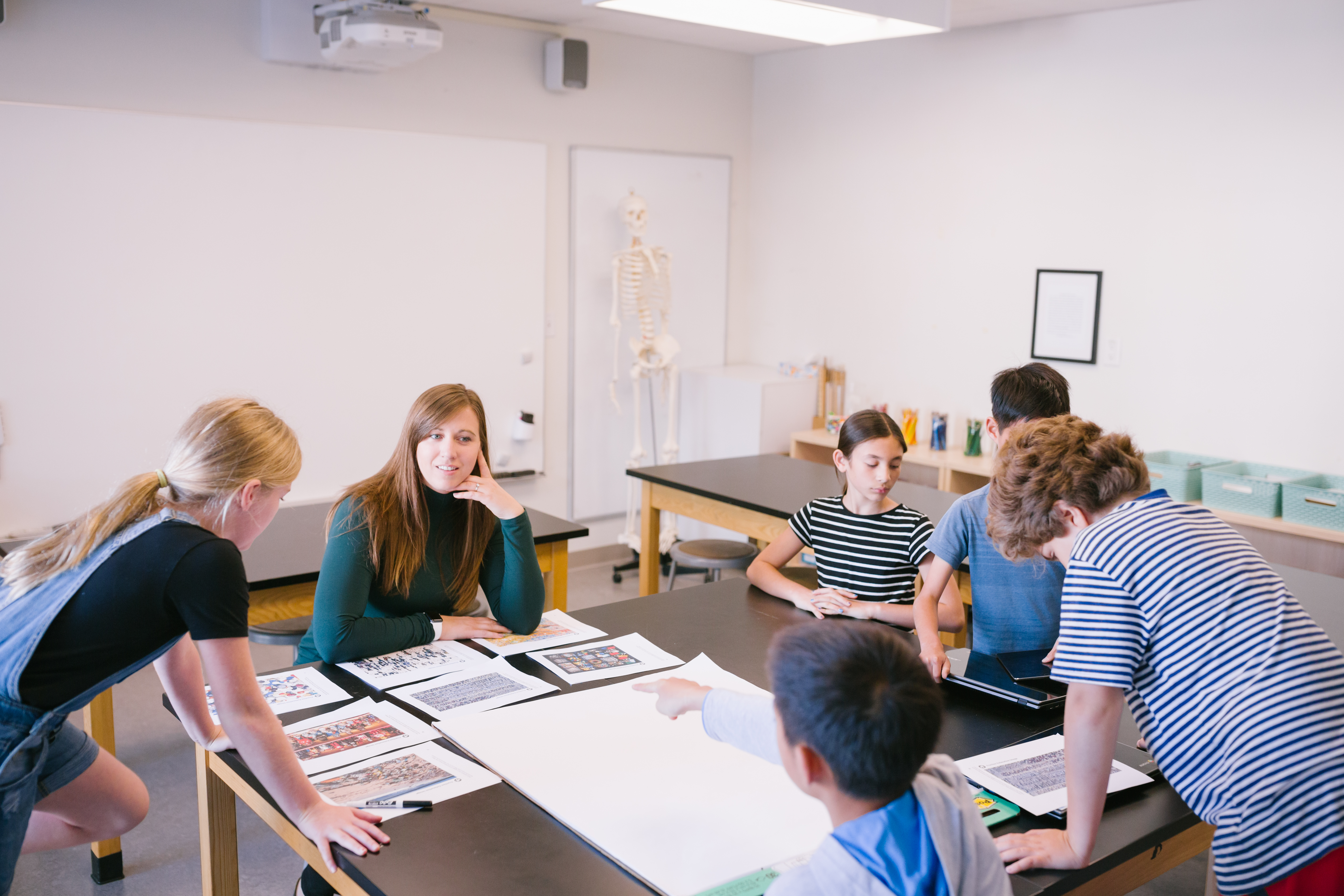
Lower Primary Curriculum
- Decoding skills
- Comprehension strategies
- Literature circles
- Silent reading and reading aloud
- Personal narrative
- Information report
- Letters and journals
- Story writing
- Recounting
- Parts of speech
- Punctuation
- Affixes
- Compound words
- Synonyms
- Antonyms
- Homonyms
- Dictionary use
- Etymology
- Common spelling patterns
- High-frequency words
- Cursive instruction
- Place value
- Whole numbers
- Operations (addition, subtraction, multiplication, and division)
- Introduction to word problems
- Operational fluency (math facts and computational automaticity)
- LCMs and divisibility
- Fractions
- Plane figures (lines, angles, triangles, quadrilaterals)
- Geometric solids
- Geometric relationships (equivalence, similarity, and congruence)
- States of matter
- Composition of the earth
- Needs, functions, and parts of the plant
- Parts and types of roots, stems, leaves, flowers, fruits, seeds
- The five classes of vertebrates
- The sun and earth
- The work of air
- The work of water
- Measurement
- The Great Lessons
- Fundamental needs of humans
- Early humans
- Grace and courtesy
- Working collaboratively
- Conflict resolution
- Goal setting
- Time management
- Singing
- Rhythm activities
- Playing instruments
- Composition
- Musical notation
- Music appreciation
- Art appreciation
- Elements of art
- Principles of design
- Drawing
- Painting
- Printmaking
- Collage
- Dancing
- Fundamental sports skills
- Team sports
- Telling time
- Money
- Crafts
- Cooking
- Going out
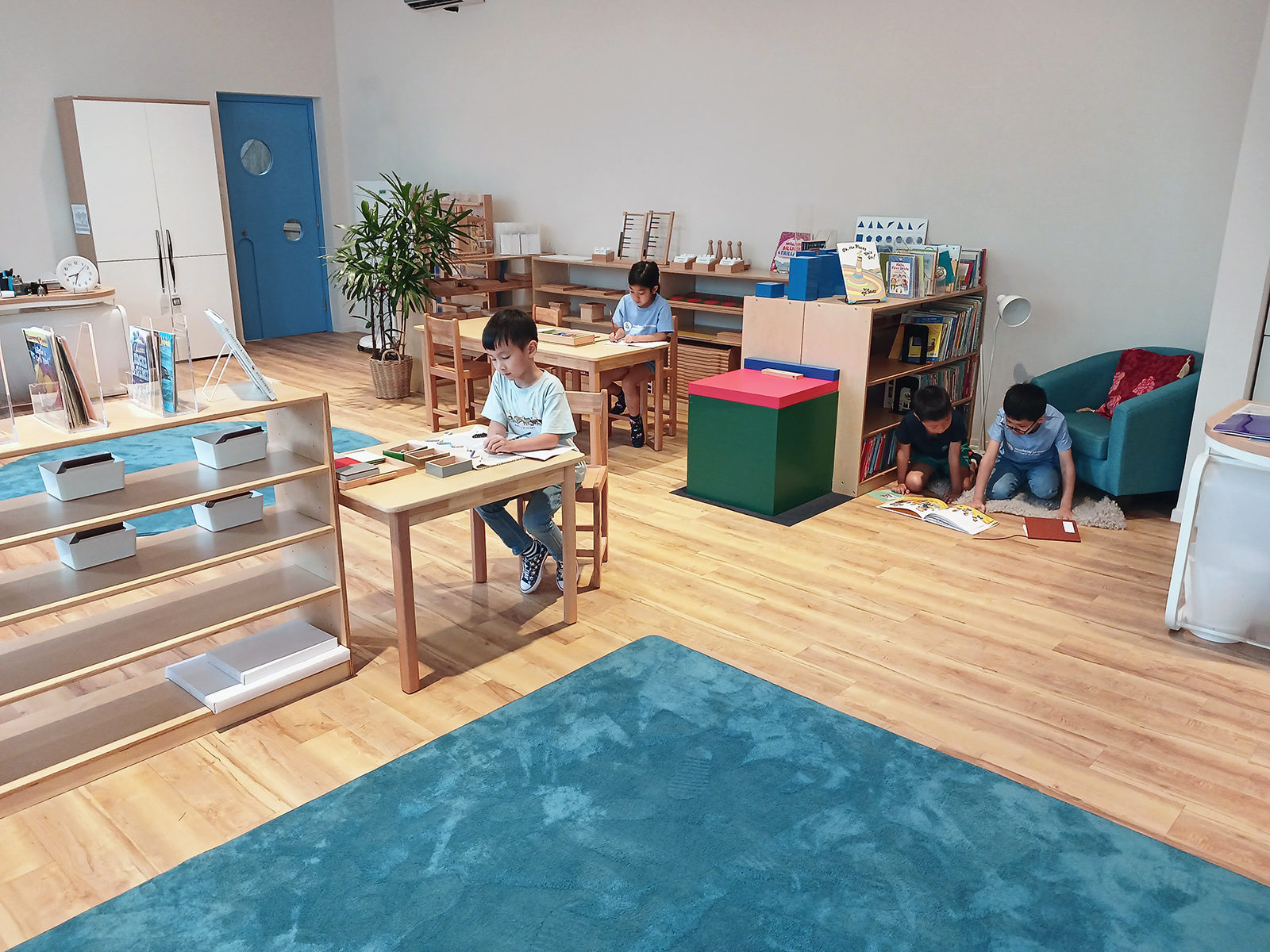
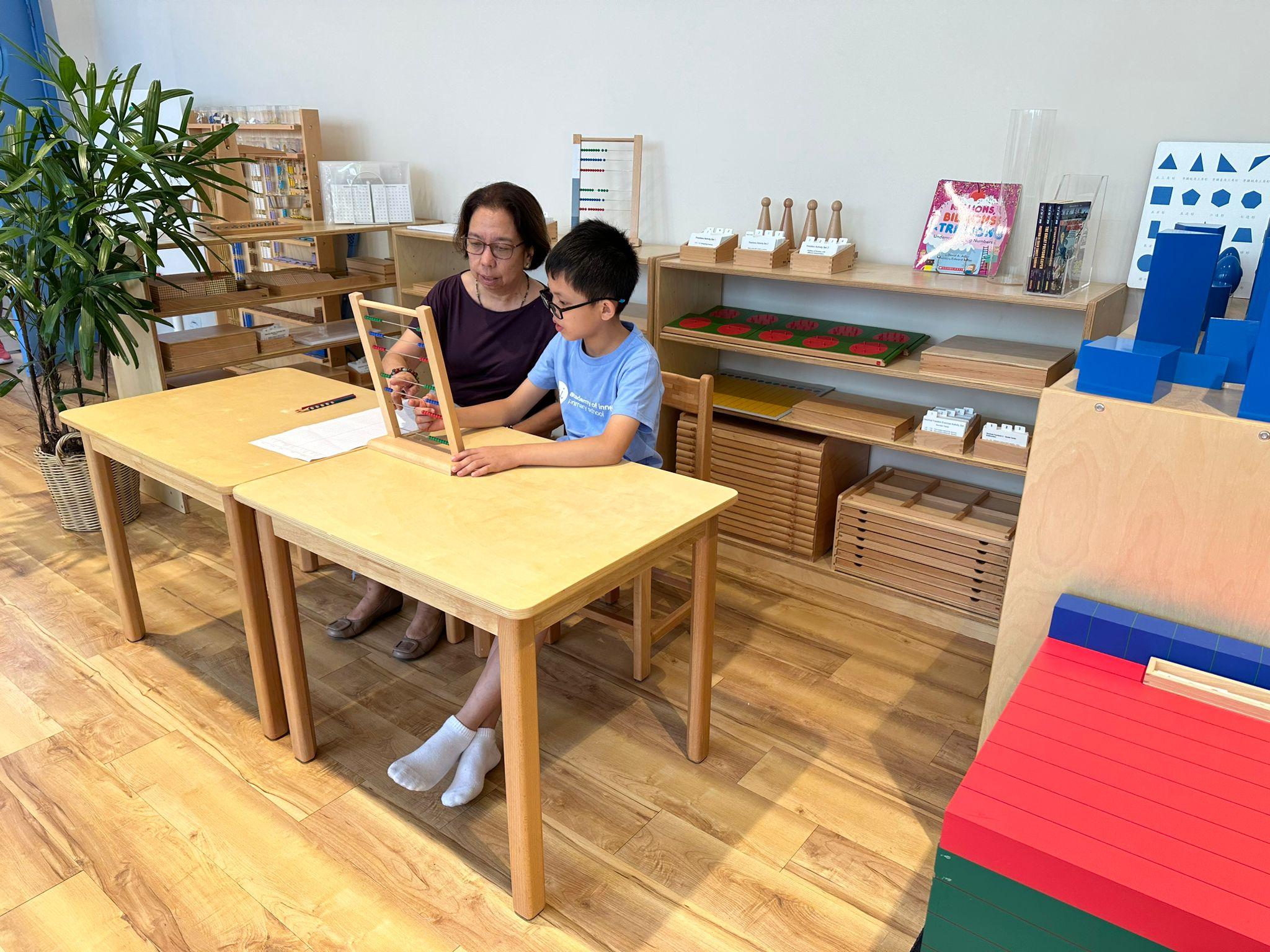
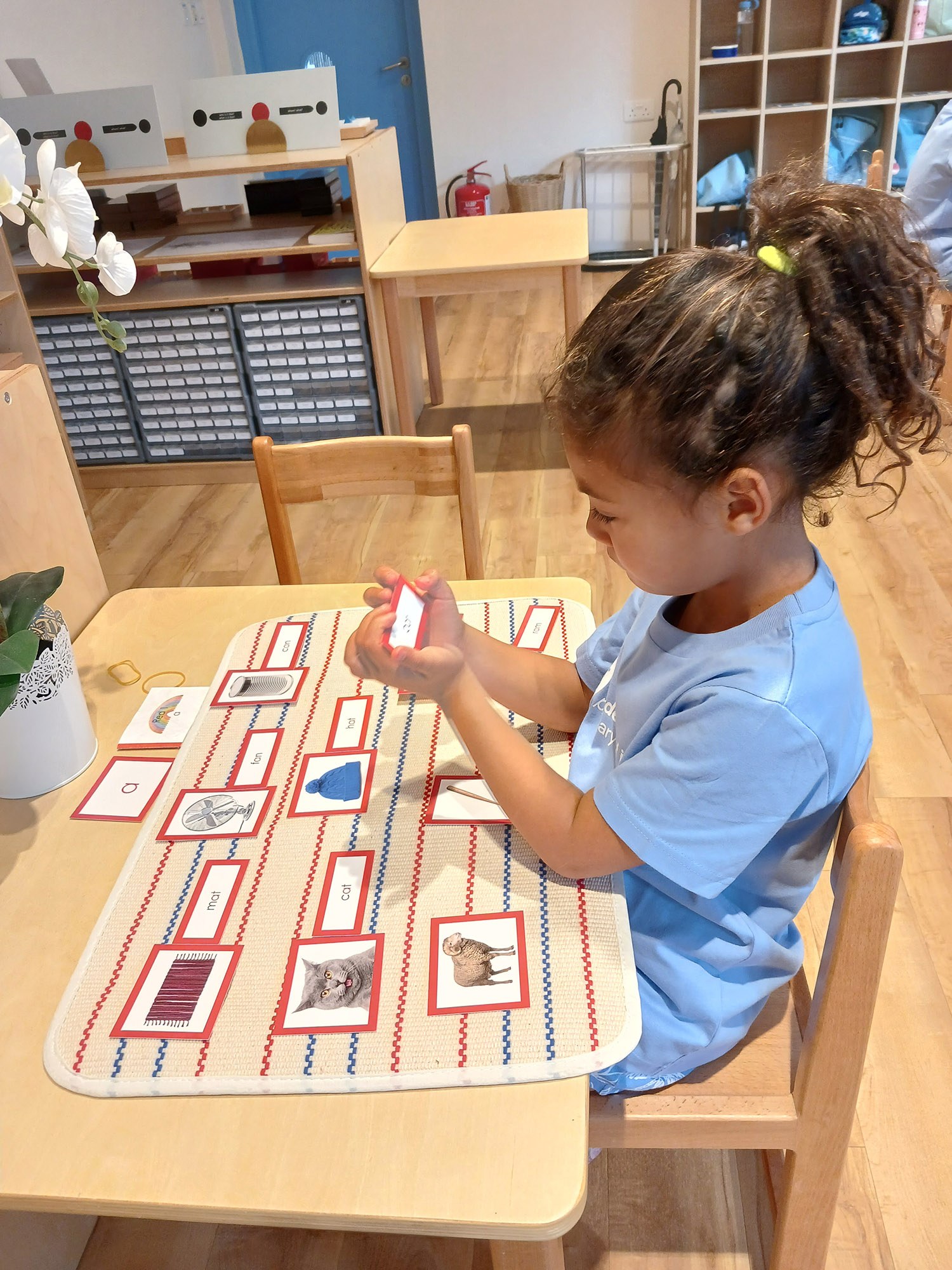
Upper Primary Curriculum
- Advanced decoding skills
- Comprehension strategies
- Literature circles
- Silent reading and reading aloud
- Summarizing text
- Note-taking skills
- Paragraphing
- Essay writing
- Persuasive writing
- Creative writing
- Sentence analysis
- Phrases and clauses
- Root words
- Complex spelling patterns
- High-frequency words
- Content-related vocabulary
- Cursive used for fluency
- Touch typing
- Advanced word problems (multi-step and non-standard)
- Introduction to coding
- Decimals
- Percentages
- Ratios and proportions
- Exponents (including binomial and trinomial expressions)
- Graphing
- Native integers
- Study of circles
- Introduction of planimetrics (perimeter and area)
- Introduction to stereometry (volume)
- Scientific classification
- Astronomy
- Human anatomy and cell biology
- Electricity
- Chemistry
- Engineering
- Early civilizations
- Ancient Egypt
- Ancient Greece
- Ancient Rome
- Middle Ages in Europe
- Language and culture
- Exploration and settlement
- Trade and the Silk Road
- Imperial relationships
- Unification and empire
- Economic development
- Culture & cultural exports
- Revolution and modernity
- World War I
- Global Depression
- World War II
- "Pax Americana"
- Singing
- Rhythm activities
- Playing instruments
- Composition
- Musical notation
- Music appreication
- Art appreciation
- Elements of art
- Principles of design
- Three dimensional art: stone, wood, plants, fiber, clay, metal, glass, and paper
- Dancing
- Fundamental sports skills
- Team sports
- Grace and courtesy
- Working collaboratively
- Conflict resolution
- Goal setting
- Time management
- Telling time
- Money
- Crafts
- Cooking
- Going out
Daily Schedule
Final schedule to be confirmed
*Schedule varies by program & locationUninterrupted three-hour work period with interdisciplinary individual and group lessons leveraging hands-on materials and other resources
Dive deep into specific topics, with group and independent projects leading to presentations and sharing
Partnerships with mission-aligned service providers to extend learning, with special focus on sports, arts, science, and sustainability
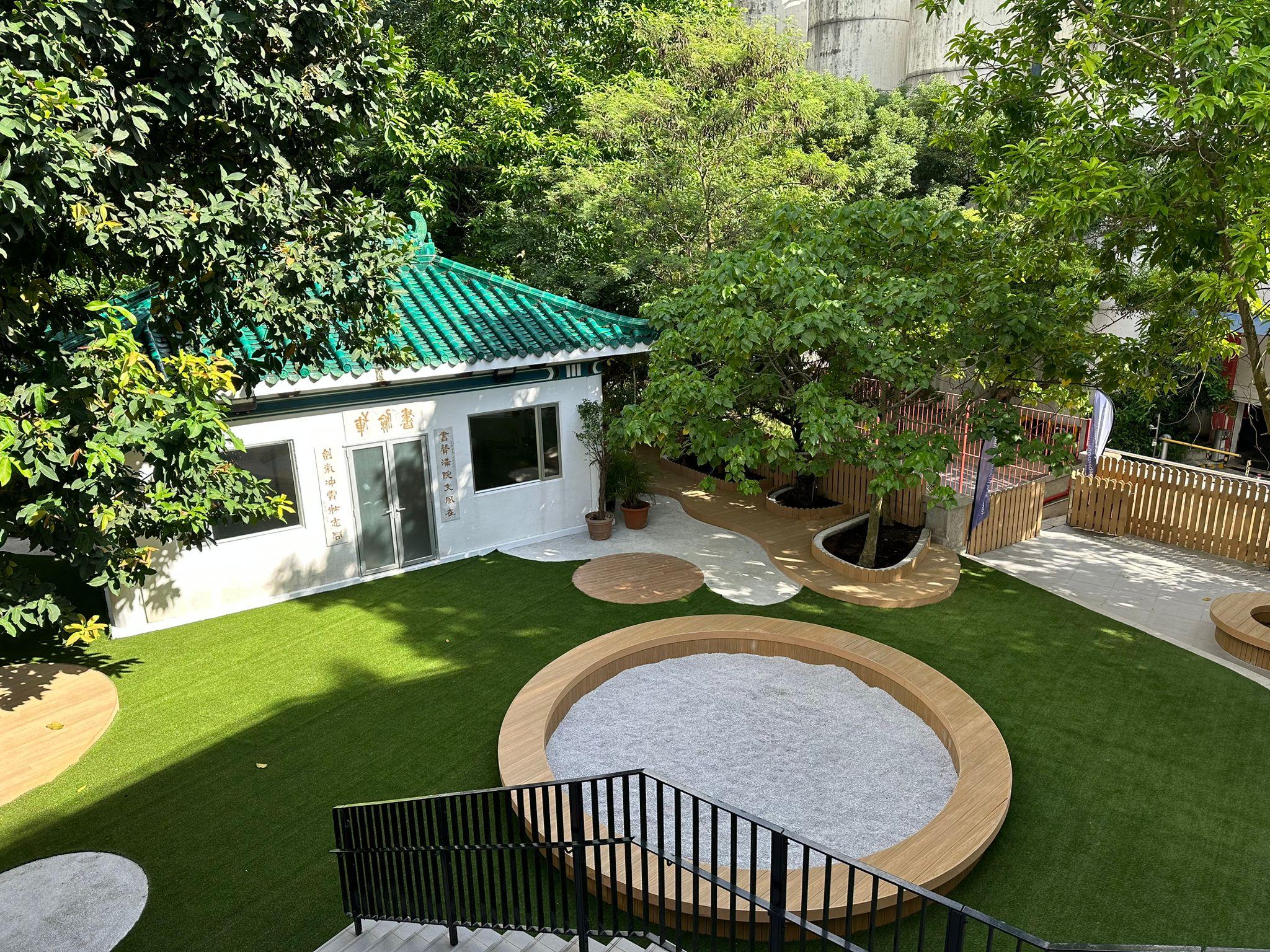
Inquire Now
Complete this brief form and our team will get in touch



